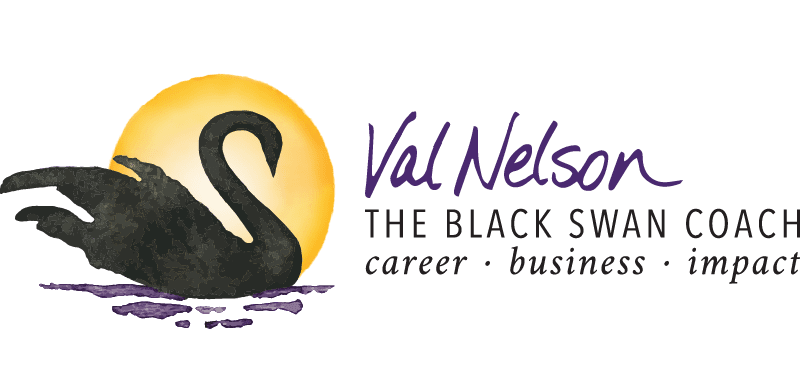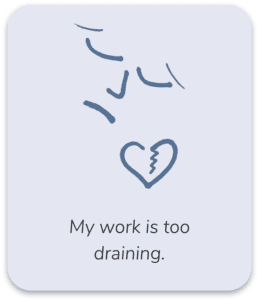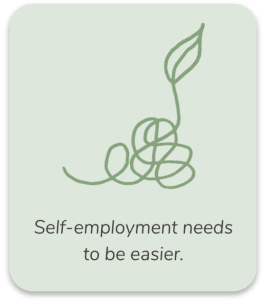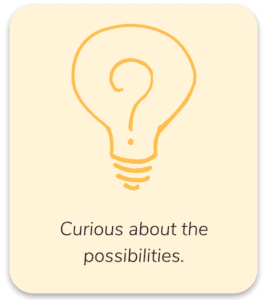 There’s so much stress over the words related to our business. You’re not alone in that struggle.
There’s so much stress over the words related to our business. You’re not alone in that struggle.
Even if you have some memorized answer to “What do you do?”, you probably still worry about whether you’re using the right words.
I especially notice this struggle when it comes to describing a new business or a cause that you’re really excited about. It feels like there’s no possible way to capture all that is in your heart about it. Using only a few words to capture it feels like you’re cheapening it somehow. Sound familiar?
If you get really tripped up on the words and you’re rethinking it over and over, you might be an introvert.
We introverts are at higher risk of over-thinking our words. That’s me. It has gotten easier for me, so I’ll share some of how it got easier.
While it’s an asset to naturally think things over thoroughly, that can cause trouble too. The worst is when you’re thinking and thinking, then you start feeling more nervous about getting it right, and negative thinking can take over. You know that feeling? Yup.
Think about all these words you have to come up with for a business, for instance. The list itself is overwhelming.
- Business name
- Tag line
- Your title
- A brief description of what you do (the dreaded “elevator pitch” and I hate that word for it).
- Business card words (It’s so small!)
- Words for your website’s Home page (What the heck?!)
- Words for your website’s About page (Credentials? Your personal story? Your philosophy? Huh? How personal to get?)
- What to say in an introductory video
- Your Linkedin profile description
- Your email signature
- What to say when a journalist interviews you about your work
- Your bio for an upcoming presentation
- Then there’s the presentation itself!
- I’m sure you can think of a few more.
- What to say when you’re “on the spot”?
If any of these items on the list cause you to tense up, you’re in good company. Finding the words is one of the hardest parts of having a business. And the same goes for a cause you’re working on, a new career direction you want to pursue, or anything to do with what you do.
OK, now you get the extent of the tongue-tied problem.
Here’s why it’s so hard, and what to do about it.
What you know about your work, and how much you care about it, is so much bigger than you could ever convey in a few words. And it’s often not just one simple thing!
In light of that, you will always feel like the words are incomplete because you simply can’t capture it all, or even the essence, when you’re trying to tell others.
The good news is that you don’t need to capture it all. And you shouldn’t even try!
You don’t want to overwhelm your listener or reader with details. They’ll glaze over. It’s simply not relevant to them at that moment. It’s more helpful to only give them a small taste or starting place. Let it be imperfect.
You have to accept that the words are never going to feel complete to you.
Luckily that abbreviated version might feel great to your audience! That’s what matters.
How Do You Find the Good-Enough Words?
It takes time to find the words that feel “good enough” for you, and great for your audience. It’s a process of trying words and seeing how they respond. It’s never set in stone.
In fact, don’t go printing lots of brochures. As soon as it’s printed, you’re going to want to change it. That’s just how it is! (Print in small batches.)
Go ahead and start using good-enough words everywhere, but know that it’s all an experiment and be willing to adjust as you go.
Words Don’t Help As Much As You Think
You’ve got to stop thinking that your business card or tag line is ever going to do that much for you anyway.
If you think about it, you’re usually standing there having a conversation when you exchange cards, and that conversation and the click between you is the real deal. And if you’re not there in person, your whole website is probably there for more context.
No amount of perfect catch phrases are going to make the meaningful connections for you.
I admit I get hung up on the words. Heck, I’ve spent way too much time editing this blog post. The Perfectionist Police will be here any minute. Wrap it up, Val.
“But My Mind Freezes Up When I’m on the Spot!”
I hear this a lot. Sometimes all those thoughts and feelings lead to a frozen feeling in the mind. We like to think before speaking but we think people expect fast answers.
First of all, you’re human. The world won’t cave in if you don’t have an instant thing to say. And I know it can feel awful in some situations.
Ack, I can picture a public speaking moment like that from years ago that is burned into my mind and it felt like the world would indeed cave in with all those eyes on me. I suspect no one else remembers it. Haha. The mind plays tricks on us.
To help me come back to calm where words can come more easily, some simple grounding methods (like slow breathing) can do wonders for clearing the mind and calming the body.
One of my go-to grounding methods is EFT (also called “Tapping”) for in-the-moment stress relief. It combines self-compassion with something like acupressure. You can use EFT even in a hidden way during a conversation! I love that. From there you can breathe and think better. (Get a quick guide to EFT here.)
Summary of How to Relax with Your Words
- Accept that the words will never feel like “enough” to you.
- Short introductory words feel best for your audience, even if it doesn’t feel complete to you.
- The words should not be set in stone. It’s a place to start and see how it goes. It takes time, with trial and error.
- When you need a lot of words, it works best if you get outside help, because you’re way too close to it. An experienced marketing copywriter or branding specialist can help. I love getting outside help for this! (I can recommend folks if you pop me a note.)
- Remember that your words won’t have to make connections by themselves. They can’t. But you can.
- If you’re still unsure of what words to use, it’s often because of a lack of clarity about your mission and services. That’s often the case. You can’t find words if you don’t know what you’re describing. That’s where a good business coach or small business mastermind group comes in.
- If you freeze up “on the spot,” make sure you know some in-the-moment grounding methods like EFT.
OK then, go forth and use some imperfect words and you’ll be on the right track. Or get some help.





